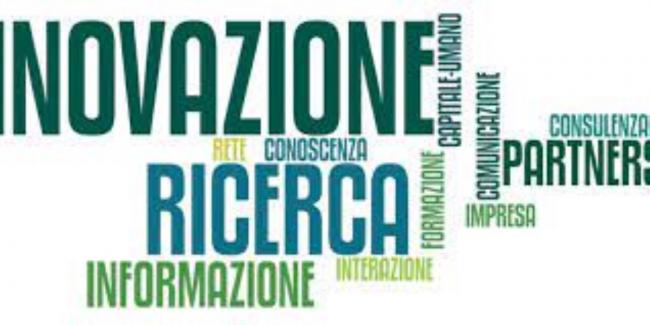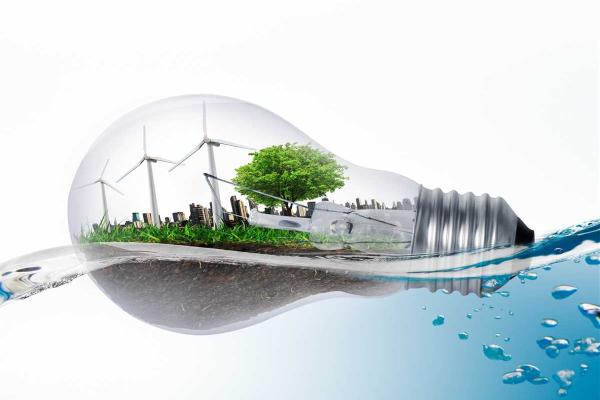Innovative energy models for the competitiveness of agricultural enterprises and for the enhancement and protection of the ligurian territory

The project aims to intervene in the containment of the information and knowledge gap existing between agricultural companies and suppliers of technological solutions and services in the context of existing opportunities in the field of energy saving. While on the one hand companies have, over time, renounced the more "energy-intensive" crops to contain production costs, on the other hand technological solutions are being diffused that could be very useful in raising added value and differentiating production, especially in greenhouses . The GO is an element of transfer of technical and financial know-how for the implementation of these solutions.
In the preparatory and coordination phase, the needs of the partner companies will be analyzed and the opportunities for the implementation of innovative solutions that are energy-sustainable and cost-effective will be identified. These innovations will be adapted to the various situations thanks to the implementation of feasibility studies that deal in detail with both energy and agronomy and economic and financial issues. The construction of these "type studies" will then allow the dissemination of information and possibilities to all other interested companies through meetings, guided tours, digital and paper information material.
The starting context is characterized by a model of Ligurian agricultural enterprise which, in large part, has renounced the use of energy, in particular in protected crops, due to the high management costs implied by traditional technologies. This situation has implied a shift in the production direction towards less energy-intensive crops, but which, for this reason, does not guarantee equal or greater profitability and which are potentially more exposed to competition from third countries.
The search for lower energy costs, in a nutshell, was not a guarantee of greater added value. Rather.
In terms of the supply of technologies, in parallel, in recent years there has been a noticeable expansion of the available solutions that would be able to guarantee agricultural companies access to energy efficiency or self-production of energy necessary under extremely high conditions favorable. However, these solutions are normally proposed to agricultural enterprises in a disorganized manner and without an overview that often creates mistrust and disinterest.
Helping to partially solve this gap between the demand for low-cost energy solutions and technologies / solutions on the other is the main objective of the proposed project. To do this, we intend to focus on the possibility of developing, presenting, illustrating and disseminating ""packages"" of technological, financial and organizational solutions suited to the different cultural needs and the different specific situations of the territory.
"The first innovation consists in providing Ligurian flower-growing companies with the possibility of evaluating, from a systemic perspective and with professional and multidisciplinary support, the potential offered by the most recent technologies related to energy efficiency and self-production of energy from renewable sources (solar energy, biomass, geothermal or air heat pumps, high efficiency cogeneration, efficient lighting systems, intelligent regulation, management and remote monitoring systems) in order to orient business investment choices in this area with greater awareness compared to the current situation.
The goal is to identify, initially thanks to partner companies and then with the involvement of other companies in the sector, some types of ""typical"" energy needs in order to build on them, for each company, a technical economic feasibility study that highlight the expected advantages of any investment in terms of lower costs or increase in company added value.
The panorama of companies potentially affected by this type of innovation is represented by the floricultural companies located in the western part of Liguria and which represent the ""agricultural horticultural district"" and, more generally, based in Liguria."
"The second innovation is aimed at identifying possible economically productive uses of the electricity produced by the numerous photovoltaic plants installed on greenhouses over the years in which the incentive system known as the ""Energy Account"" (2010/2013) was in force. The energy produced by these plants, in addition to being remunerated with a public contribution for each kWh produced, is currently transferred to the network by the owners and valued at the marginal price which in summer in particular is usually unattractive (3 or 4 c € / kWh).
In this case the project objective is to verify, through interdisciplinary feasibility studies, whether it is possible to imagine uses of this energy for uses that can increase, through coherent crop and agronomic choices, the value of the companies that own them or of the neighboring ones : for example by producing cooling energy to be used for the summer air-conditioning of greenhouses or substrates, or by storing the energy produced during the day to supply efficient lighting systems in the evening.
In this case, the panorama of potentially interested companies is certainly the total of the floricultural companies that already have photovoltaic plants but can be extended to any company with greenhouses that can consider it convenient to allocate part of the surfaces to the installation of photovoltaic modules in order to be able to feed new low cost high added value crops.
A third innovation concerns the process of transfer of knowledge to floriculture companies of the potential for managerial improvement deriving from the use of intelligent systems of regulation, management and remote monitoring as well as of thermographic analysis or accurate measurement campaigns in the field. These systems, until a few years ago very expensive and not very reliable, can now be implemented with low-cost technological solutions and represent an opportunity to undertake management strategies and correct agronomic interventions taking into account the actual crop needs, biochemical and physical characteristics of the soil as well as of the climatic-environmental conditions of the analyzed site.
The project objective in this case is to include a section dedicated to the use of these systems and to the expected advantages (also in terms of energy and water savings) in every feasibility study carried out for the initiatives referred to in the previous points, in so as to focus the specific advantages of these low-investment technologies among users and interested parties.
The panorama of companies potentially interested in this type of innovation is extended not only to floriculture companies with greenhouses but also to all companies that carry out cultivation in the open field.
"The fourth innovation pursued is of an economic and financial nature and concerns the possibility of widening the financing potential and implementation of energy efficiency interventions in floriculture companies through the possible access to systems and financial solutions normally used by specialist operators (Energy Services Company - ESCo). The National Energy Strategy (SEN) and the related Action Plan identify objectives, professional subjects entitled, technological characteristics, intervention methods and incentive tools that can validly be used in synergy with the financial means made available by the Development Plan Rural to multiply the entity and to amplify the positive effects on the agricultural enterprises and on the interested supply chains.
The objective of this innovation is therefore to identify the solutions for the implementation of energy efficiency interventions thanks both to access to financial instruments dedicated to energy efficiency (TEE, Conto Termico 2.0, etc.) and through the use of financing schemes powered by equity capital (FTT - Finance through third parties) can offer agricultural companies access to energy solutions at very competitive conditions.
The potential interested in this type of financial innovation are in general the agricultural enterprises that through this initiative come to know of it, even not nursery gardening.
"
Documentazione del workshop Innovazione e conoscenza per l’agricoltura: le sfide del futuro per la cooperazione in Liguria
I Gruppi Operativi, Liguria, PEI-AGRI, Italia| Titolo/Descrizione | Url | Tipologia |
|---|---|---|
|
Sito web del progetto
|
Sito web
|
|
|
link a IRF
|
Link ad altri siti che ospitano informazioni del progetto
|
|
|
link a Agresco
|
Link ad altri siti che ospitano informazioni del progetto
|
|
|
link a unige DIME
|
Link ad altri siti che ospitano informazioni del progetto
|
|
|
link a unige DIBRIS
|
Link ad altri siti che ospitano informazioni del progetto
|
|
|
link a reterurale
|
Link ad altri siti che ospitano informazioni del progetto
|
